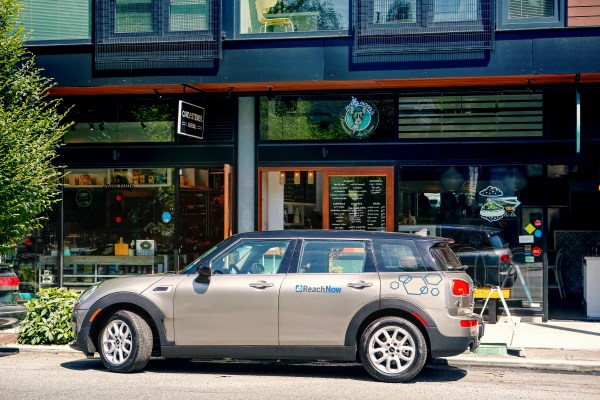Auto manufacturers are realizing that the future of transportation is not going to be one person, one car. It’s going to be ridesharing, ridehailing and public transit — and these vehicles may not even require drivers. So most major manufacturers have made a turn toward becoming “mobility companies.”
It’s been a quick turn, though. In just the first half of 2016, several manufacturers have negotiated that turn by partnering with a transportation company that’s already operating in this brave new transportation world, or by creating their own in-house mobility service, as BMW and Daimler did.
As the transportation landscape changes in the next several years, these partnerships will likely become a web of options, including biking and walking, that are accessed by apps to coordinate local travel. But for now, here are the biggest collaborations on the streets:
- BMW + ReachNow: The German automaker began ReachNow as a pilot program in the San Francisco area under its DriveNow brand. In late 2015, the team wound down operations in California and moved to Seattle, where it restarted as ReachNow in April 2016. This is a free-floating carsharing service; you can pick up a car, drive it and drop it off in any valid parking space. BMW has also invested in Scoop, a carpooling company based in California.
- Daimler + car2go: This is the outlier on the list, since Daimler created its car2go service in the dark ages of carsharing — 2008. It uses Smart ForTwo models exclusively, including electric versions in some cities. It’s now the largest such service, in 29 cities globally and with more than 1.9 million users.
- GM + Lyft: As of January, GM and Lyft are working together to create a network of on-demand autonomous vehicles in the future. In the meantime, they’ve partnered with Express Drive, a short-term rental service for Lyft drivers who need qualified cars. If Lyft drivers give 65 or more rides using their rented Chevy Equinox in pilot city Chicago, the $99-per-week rental fee is waived.
- Toyota + Uber: Toyota and Uber announced their partnership in May of this year, allowing Uber drivers to make lease payments using Uber income. Interestingly, Mirai Creation Investment is also named in the deal, which hints at Uber drivers being able to lease hydrogen-powered Mirai vehicles in states like California that have some infrastructure to support them.
- VW + Gett: In May 2016, Volkswagen invested $300 million in Gett, formerly GetTaxi, a ridehailing service operating in 60 cities worldwide. Gett is a bit different from competitors like Uber in that it uses only drivers who have a permit to carry passengers; for example, half of the taxis in London use Gett, according to a press release.
Edited 7/8/16; car2go now has 1.9 million users, not 1.3 million.
